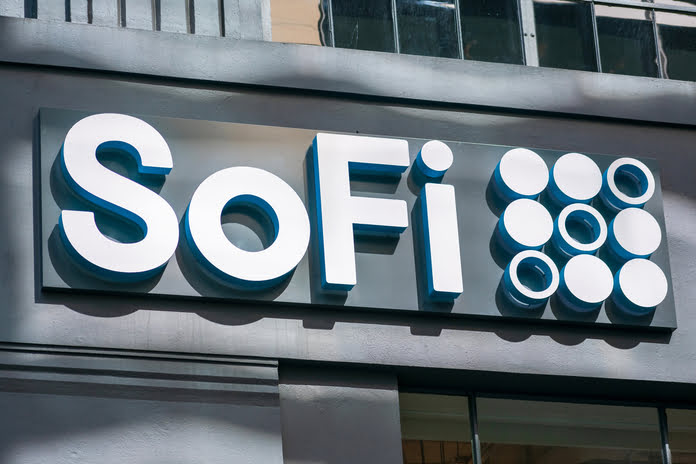Shares of SoFi Technologies (NASDAQ:SOFI) experienced a 3.5% decline in premarket trading on Thursday following a downgrade by Morgan Stanley’s analyst to Underweight. The financial technology company is now being viewed through a lens more aligned with a bank, prompting the adjustment in valuation.
Morgan Stanley analyst Jeffrey Adelson conveyed in a client note, Previously, we assessed SOFI’s value based on its growth potential, which outperformed most banks and consumer lenders. However, as SoFi increasingly resembles a bank, we believe its valuation should align with that of a bank.
Based on the current stock price, the company is trading at 2.1 times the tangible book value per share projected for 2024. This valuation reflects an expectation of over 30% return on tangible common equity, which Adelson considers overly optimistic.
Adelson’s estimates suggest that a bank business model can only achieve a 15% return on tangible common equity by 2026. Consequently, this would justify a price-to-tangible book value multiple of approximately 1x for consumer finance companies. However, he does anticipate SoFi (SOFI) surpassing this benchmark and ultimately reaching a return on tangible common equity of over 20%. As a result, he estimates that the appropriate valuation for SoFi would be 1.5 times the price-to-tangible book value.
Additionally, Jeffrey Adelson anticipates that the student loan refinancing opportunity will be roughly half of SoFi’s projected $200 billion. He asserts that higher-rate graduate debt, as opposed to Parent PLUS loans or undergraduate loans, is more likely to be refinanced. Adelson assumes that around 60% of the remaining higher-rate graduate debt will be eligible for SoFi’s refinancing offerings.
Adelson’s Underweight rating for SoFi indicates a bearish stance, contrasting with the Hold rating from SA Quant, the Buy rating from the average SA Analyst, and the Hold rating from the average Wall Street consensus.
Featured Image: Megapixl















